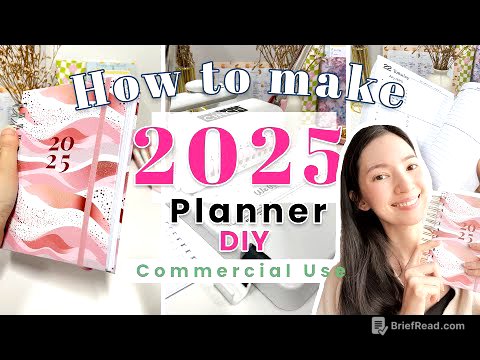TLDR;
This video is a compilation of various scenes featuring characters uttering specific phrases in different contexts. The phrases include expressions of annoyance ("driving me nuts"), disbelief ("you got to be kidding me"), indifference ("couldn't care less"), obviousness ("no-brainer"), inquiries about well-being ("how's life treating you," "how's it going"), acknowledgements ("long time no see"), curiosity ("what have you been up to," "how do you know"), seeking clarification ("did I hear that right," "did I get that right"), offering reassurance ("take it easy," "it doesn't matter"), providing explanations ("that explains it"), expressing gratitude ("thanks anyway," "thank you in advance," "I appreciate it"), seeking information ("what's going on"), indicating immediacy ("I'll be with you in a minute"), reminiscing ("where were we"), offering encouragement ("good for you"), and bidding farewell ("I better be going," "take care").
- Annoyance and Frustration
- Indifference and Apathy
- Seeking and Providing Information
- Encouragement and Farewell
Driving Me Nuts [0:08]
Characters express extreme annoyance and frustration in various situations. One character laments the difficulty of being a woman in male-dominated clubs. Another is irritated by someone's constant presence and actions. Others express frustration with a voice, an outfit, or general craziness. The phrase "driving me nuts" is used repeatedly to emphasize the level of irritation.
Not the End of the World [1:43]
Characters attempt to console each other, but their efforts are met with resistance. One character insists that a situation is indeed the end of the world, rejecting attempts at cheering up. Another character sarcastically offers an unhelpful gesture to "cheer up" a scientist. The exchange highlights contrasting perspectives on the severity of a problem.
It's Not Worth It [3:12]
Characters advise against certain actions, deeming them "not worth it." One character warns about the toll of pride. Another refuses to attend a wedding. The phrase is used to dissuade someone from pursuing a course of action that is believed to have negative consequences.
Step Up Your Game [4:17]
Characters encourage each other to improve their efforts and performance. The phrase "step up your game" is used in contexts ranging from personal relationships to professional endeavors. The need to improve is emphasized.
Pull Yourself Together [4:50]
Characters urge each other to regain composure and control. The phrase "pull yourself together" is used in response to emotional distress or chaotic situations. The need to regain control is emphasized.
Couldn't Care Less [5:21]
Characters express indifference or apathy towards various situations and people. One character claims not to care about someone. Another corrects the misuse of the phrase, clarifying its meaning. The lack of concern is emphasized.
No-Brainer [6:03]
Characters describe decisions or choices as obvious and straightforward. The phrase "no-brainer" is used to indicate that a particular course of action is the clear and logical choice. The obviousness of the choice is emphasized.
How's Life Treating You [6:26]
Characters inquire about each other's well-being and experiences. The phrase "how's life treating you" is used to initiate conversations about personal lives and circumstances. Various responses are given, ranging from negative to positive.
How's It Going [7:10]
Characters greet each other and ask about their current state. The phrase "how's it going" is used as a casual way to inquire about someone's well-being or progress.
Long Time No See [7:21]
Characters acknowledge and greet each other after a period of separation. The phrase "long time no see" is used as a friendly way to express that it has been a while since they last met.
What Have You Been Up To [7:39]
Characters inquire about each other's recent activities and experiences. The phrase "what have you been up to" is used to initiate conversations about what someone has been doing since they last met.
How Do You Know [8:12]
Characters question each other's knowledge or understanding of a situation. The phrase "how do you know" is used to challenge someone's claims or to seek clarification about the basis of their knowledge.
Did I Hear That Right [8:48]
Characters seek confirmation about something they have heard, often expressing disbelief or concern. The phrase "did I hear that right" is used to ensure that they have understood correctly, especially when the statement is surprising or alarming.
Take It Easy [9:19]
Characters advise each other to relax and avoid stress. The phrase "take it easy" is used to encourage someone to calm down and not overexert themselves.
It Doesn't Matter [9:43]
Characters dismiss the importance of something, indicating that it is not significant or relevant. The phrase "it doesn't matter" is used to minimize the impact of a situation or statement.
Fingers Crossed [10:00]
Characters express hope for a positive outcome. The phrase "fingers crossed" is used as a gesture of wishing for good luck.
That Explains It [10:17]
Characters express understanding or realization after receiving new information. The phrase "that explains it" is used to indicate that something that was previously confusing now makes sense.
These Things Happen [10:50]
Characters offer a casual explanation or acceptance of events. The phrase "these things happen" is used to downplay the significance of unexpected or unfortunate occurrences.
Thanks Anyway [11:04]
Characters express gratitude despite a lack of success or a negative outcome. The phrase "thanks anyway" is used to acknowledge someone's effort or intention, even if it did not achieve the desired result.
Thank You in Advance [11:21]
Characters express gratitude before receiving a service or favor. The phrase "thank you in advance" is used to show appreciation for something that is expected to be done in the future.
What's Going On [11:31]
Characters inquire about the current situation or events. The phrase "what's going on" is used to seek information about what is happening or to express concern about a situation.
Did I Get That Right [11:51]
Characters seek confirmation about their understanding of a situation or statement. The phrase "did I get that right" is used to ensure that they have interpreted something correctly.
Sorry to Bother You [12:21]
Characters apologize for interrupting or inconveniencing someone. The phrase "sorry to bother you" is used to show politeness when seeking assistance or attention.
I'll Be With You in a Minute [12:40]
Characters indicate that they will attend to someone's needs shortly. The phrase "I'll be with you in a minute" is used to reassure someone that they will receive attention soon.
Where Were We [13:03]
Characters attempt to resume a conversation or activity after an interruption. The phrase "where were we" is used to recall the point at which they left off.
Lucky You [13:22]
Characters express envy or admiration for someone's good fortune. The phrase "lucky you" is used to acknowledge that someone has experienced a positive outcome or opportunity.
I Freaked Out [13:33]
Characters describe a moment of intense fear or panic. The phrase "I freaked out" is used to convey a strong emotional reaction to a situation.
Good For You [14:03]
Characters express approval or encouragement for someone's actions or achievements. The phrase "good for you" is used to show support and congratulate someone on their success.
I Better Be Going [14:31]
Characters indicate that they are about to leave. The phrase "I better be going" is used as a polite way to signal the end of a visit or conversation.
Take Care [14:43]
Characters bid farewell and wish each other well. The phrase "take care" is used as a friendly way to say goodbye and express concern for someone's well-being.









